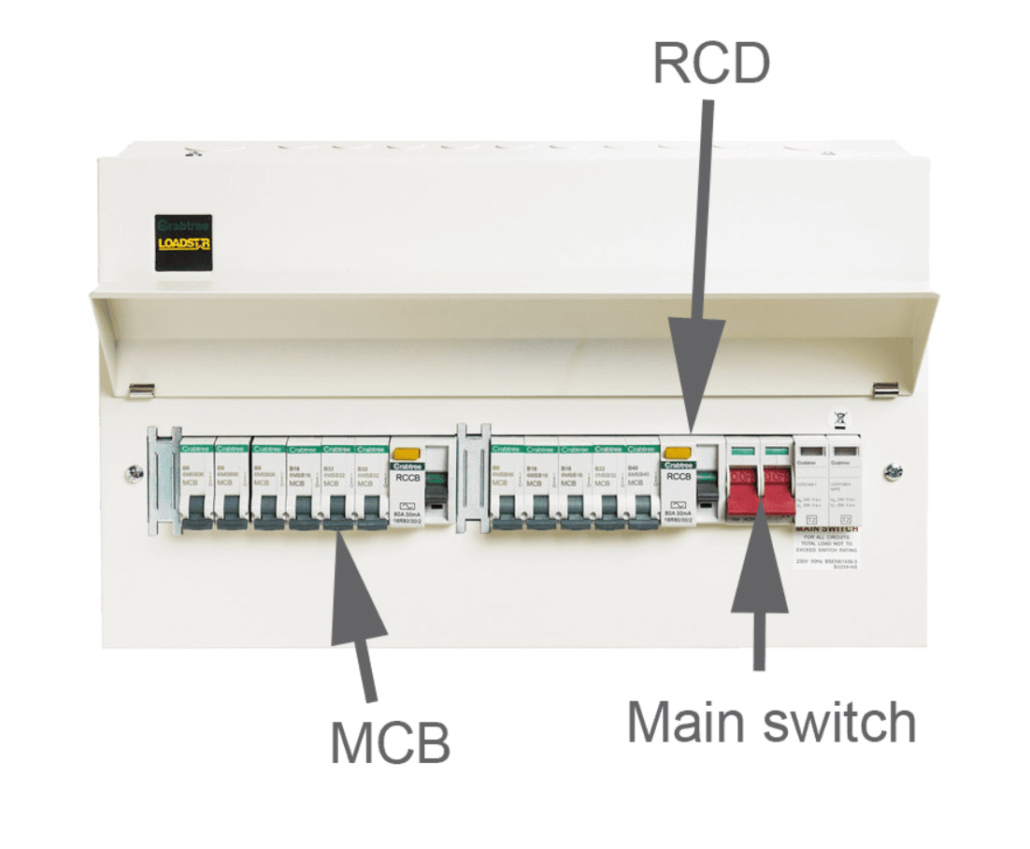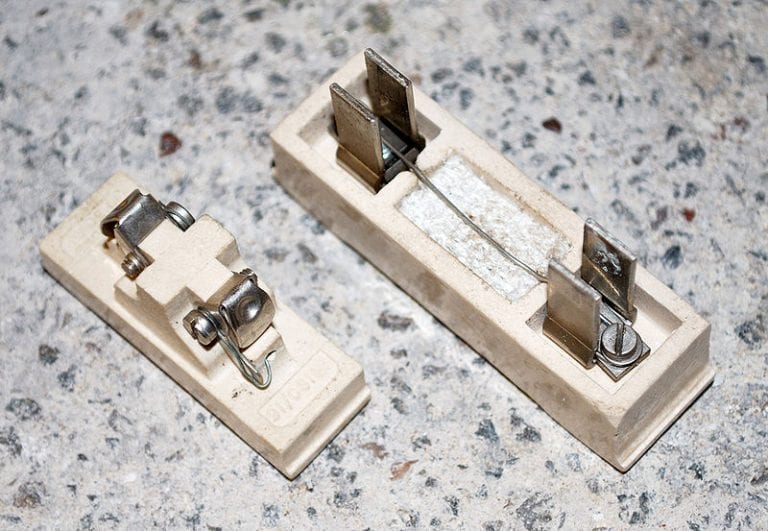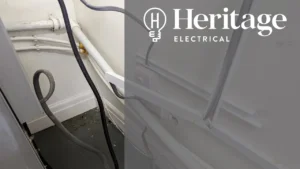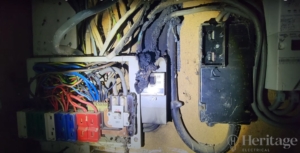Legislation affecting tenants
New legislation has recently come into effect as of June 2020 whereby a landlord must supply an electrical installation condition report to a new tenant within 28 days of the tenancy commencing.
Please read our page on condition reports if you need any more information on what a report entails, which includes an example of the paperwork you should receive as a new tenant.
This post aims to give you a few key things to watch out for when viewing properties to rent.
Whilst the condition of the electrical installation isn’t the be-all and end-all when making a decision on whether to rent or not, it is certainly a good indicator of the type of landlord you might be signing yourself up for!
Types of fuse board or consumer unit
There are 3/4 types of consumer unit you might find in a domestic property:
• Old re-wireable fuse type
• Newer MCB board
• MCB board with RCDs
• Newest RCBO type
See if you can have a look at the consumer unit when viewing the property: does it look old and badly maintained? Are all the circuits labelled, (downstairs sockets, upstairs lights etc.)? Does it have a sticker stating when the last inspection was carried out and when the next one is due?
There isn’t anything necessarily wrong with an old fuse board providing they have been installed an maintained correctly; however they do not comply with current regulations regarding the additional protection offered by modern RCD devices. RCDs are a safety device designed to protect you as the end user.

MCBs and fuses
In the unit, you will find fuses or MCBs (miniature circuit breakers) – one for each circuit around the property. An MCB might cover downstairs sockets, your oven, upstairs lighting etc. More modern installations will have more segregation for accessories in your house, whereas older properties may only have one socket circuit or one lighting circuit, rather than separate ones for up/downstairs.
An MCB allows you to isolate a particular part of the installation to allow for maintenance or repair, and will trip automatically in the case of a fault.
A fuse essentially does the same job, however they are not as sensitive, and require removal to isolate the circuit, rather than having a handy switch: inherently more dangerous than the MCB equivalent.
The problem with fuse boards
A modern MCB or RCD protective device can be reset after a fault has been attended to, whereas once a fuse blows – either a cartridge fuse, or fuse wire in the old carrier style – the power cannot be reinstated until the wire/fuse is replaced.
This is not only a big inconvenience, but can lead to dangerous situations where people replace appropriated sized fuse wire with items such as nails out of laziness or desperation to get the power back on. In this case, there is essentially no protection for the circuit: it might permit many 100s of Amps to flow for an extended period, and may result in death or fire.
Whilst a fault remains, an MCB or RCD unit will not allow the circuit in question to be re-energised.

What is an RCD?
To be compliant with the 18th Edition wiring regulations essentially all circuits in a domestic dwelling require additional protection from an RCD (or RCCB – same thing!)
An RCD is a very sensitive protective device used to protect the end user of the installation – you! In the picture on the left, it’s the device with the big orange test button.
A common arrangement is to find 2 RCD units; each protecting a selection of circuits. If an RCD detects a fault on any of the 5 or 6 circuits it monitors, it will trip and you will lose power to half your installation.
A more modern installation will have an RCD built into each circuit: when there is a fault, you know exactly which circuit has caused it, making it much easier to find and rectify the issue.
What if there are no RCDs?
This is not necessarily an issue, however, there should be no metal switches, sockets or light fittings present as they represent a higher risk for shock which would be mitigated by RCD protection.
If your potential property has fancy fixtures and fittings, but an old fuse board, chances are your landlord has not been particular with using a registered electrician to carry out the work, and will not have received the correct paperwork for the installation of these accessories. Again, this might give you an idea of the type of landlord they might be!




